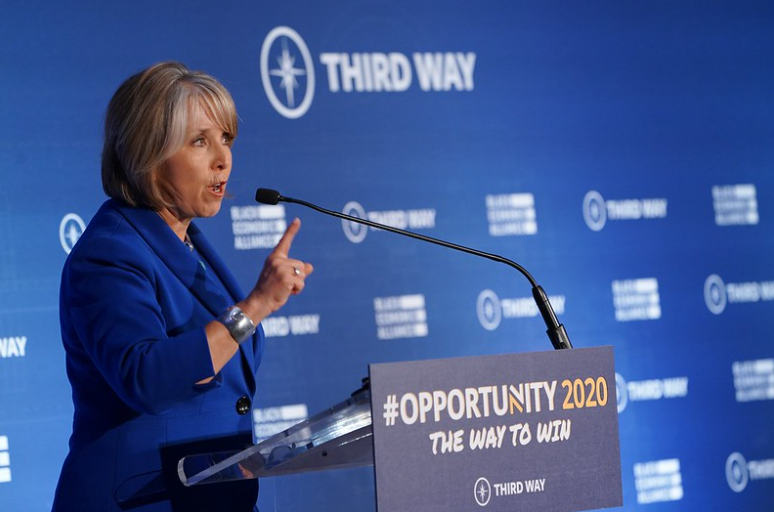The most consistent thing about government is that those in power, no matter who they are, always claim to have our best interests at heart. This is particularly true of mayors, governors, and the president because they represent wide, often disparate groups of people and wield immense power for their respective jurisdictions. When an executive wields this power, people inevitably voice their dissatisfaction with the results in one way or another.
“It’s for your own good!” runs the executive’s trusty refrain, delivered differently depending upon the person, but ultimately always with an air of total authority.
We have heard this repeated at every level of government concerning more and more egregious encroachments and violations of our rights and liberties. It comes from places and people we least expect, as well as those from whom it is the standard response. Look no further than the Covid pandemic, where even here in Alabama, church assembly was restricted and businesses were closed without compensation.
With each utterance of this refrain, the bar gets lower, to the point where the executive who violates rights the least receives a campaign badge of honor rather than a blemish to repent from and ask forgiveness of the people.
However, a corollary effect is that those executives with the least scruples are emboldened to exert even more power over those they are elected to serve. We saw this play out in real-time when New Mexico Gov. Michelle Lujan Grisham signed an executive order on Sept. 7 declaring gun violence a public health emergency, banning firearms from being carried openly or concealed in Bernalillo County, home of the state’s largest city, Albuquerque.
“You took an oath to the Constitution,” a reporter asked the governor at a press conference the following day. “Isn’t it unconstitutional to say you cannot exercise your carry license?”
Grisham responded:
“With one exception. And that is, if there’s an emergency and I’ve declared an emergency for a temporary amount of time, I can invoke additional powers. No constitutional right, in my view, including my oath, is intended to be absolute. There are restrictions on free speech. There are restrictions on my freedoms.”
Of course, we know that the governor was really saying, “It’s for your own good!”
Thankfully, the response thus far against Grisham’s blatant disregard of the Constitution has been a swift, near-unanimous and effective “no.”
Immediately, multiple Second Amendment groups, including the National Association for Gun Rights and Gun Owners of America, assisted New Mexican citizens in filing lawsuits. Bernalillo County Sheriff John Allen and District Attorney Sam Bregman announced that they would not be enforcing the unconstitutional order. Over a hundred citizens, many exercising their Second Amendment right to carry a firearm, gathered in Albuquerque to protest the governor’s order.
Perhaps the most surprising response came from the left with CNN correspondent Poppy Harlow directly confronting Grisham on the Sheriff and DA’s decision to not enforce the order because it was unconstitutional. The governor responded:
“Well, that’s their opinion. They have no bold actions. They don’t have any plans for reducing gun violence.
…
[This order] wasn’t just about a cooling off period, it’s about making sure that everyone is safer while we do bolder work to get at both the drug epidemic and the gun violence epidemic.
And it’s not for police to tell me what’s constitutional or not.”
Setting aside the fact that the police put their lives on the line every day while dealing with crime and gun violence in the streets, our police officers also take an oath to both their state constitution and the U.S. Constitution. Those oaths necessitate that unconstitutional orders are not to be followed, and, contrary to Grisham’s opinion, that includes any unconstitutional orders she may issue as governor.
Thankfully, U.S. District Judge David Herrera Urias, a Biden appointee, issued a temporary restraining order on Sept. 13 in GOA v. Grisham, No. 1:23-cv-00772-DHU-LF, enjoining Grisham and all other New Mexico officials from enforcing the emergency order until the court makes a ruling on the plaintiffs’ motion for preliminary injunction.
Not to be deterred, Grisham amended her order on Sept. 15 to apply only to city parks and playgrounds. This is a common play among executives who are called out for overreach: amend the unconstitutional order at issue so that it seems to infringe slightly less on the people’s rights. While this move operates like a release valve on the controversy, oftentimes, the revised order is just as unconstitutional.
The oft-quoted Lord Action remark, “Power tends to corrupt, and absolute power corrupts absolutely,” usually comes up with every new instance of executive overreach. The phrase, and sentiments like it, are mentioned in op-eds like this one, discussed at the dinner table, and debated on social media for a while. Sometimes these debates are developed in court and/or lawmaking chambers. And on very rare occasions, a lawsuit is won, or a bill is made law that actually limits power.
Unfortunately, however, the public’s memory of the abuse of power often simply fades with time. So, while it is encouraging to see the pushback in New Mexico, hopefully, it is only the beginning. Until we are willing and able to bind the hand of executive power with specific restraints under the law, we will continue to hear that trusty refrain, “It’s for your own good!” in response to our injuries again and again.
Talmadge Butts is Lead Staff Attorney for the Foundation for Moral Law (www.morallaw.org). Those with constitutional concerns may call the Foundation at (334) 262-1245 or email talmadge@morallaw.org.
The views and opinions expressed here are those of the author and do not necessarily reflect the policy or position of 1819 News. To comment, please send an email with your name and contact information to Commentary@1819news.com.
Don’t miss out! Subscribe to our newsletter and get our top stories every weekday morning.










